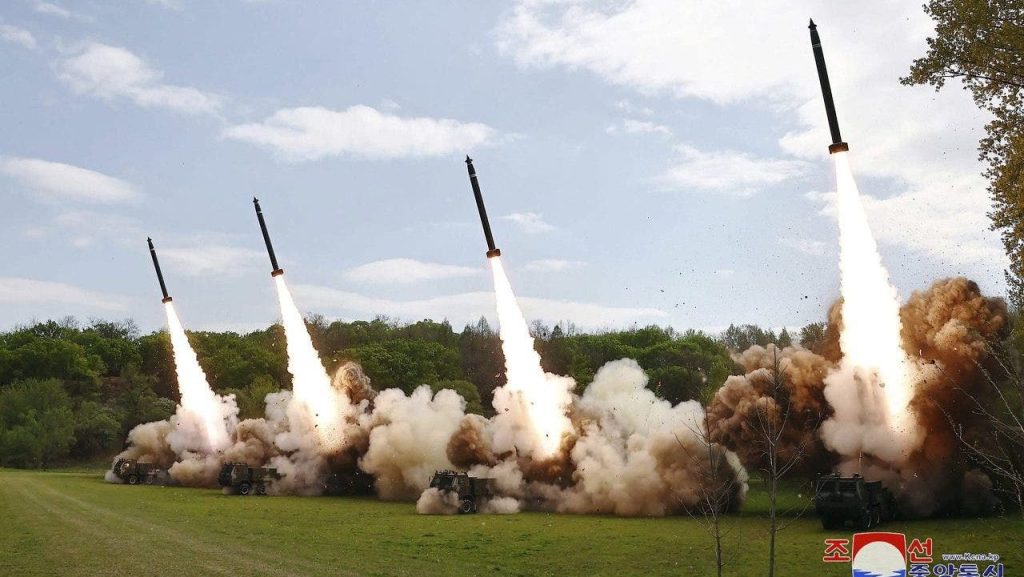North Korea conducted a missile test on Monday, which local media reported was a drill to test nuclear force preparedness. The test involved the launching of several short-range ballistic missiles near Pyongyang, which flew approximately 185 miles before falling in the waters between the Korean Peninsula and Japan. The main purpose of the drill was to showcase the reliability, superiority, might, and diverse means of the country’s nuclear forces and the Haekbangashoe system, described as a “nuclear trigger” that serves as a warning signal to North Korea’s enemies. The system included the maneuver of troops into a counterattack posture to strengthen the country’s prompt counterattack capacity.
North Korea launched missiles from at least four vehicles that delivered a single firing salvo against an island within a 220-mile range. The U.S. Naval Institute reported that North Korean leader Kim Jong Un oversaw the drill, which coincided with a combined joint formation drill between the U.S. and South Korea at Kunsan Air Base. South Korea’s Joint Chiefs of Staff disputed reports of the accuracy and capabilities of North Korea’s weapons system, stating that they could detect and intercept any weapons. To combat North Korea’s aggressive pursuit of nuclear preparedness, the U.S., Japan, and South Korea agreed to a system of real-time missile data-sharing to monitor Pyongyang’s launches.
The U.S. Indo-Pacific Command stated that North Korea’s missile launch did not pose an immediate threat to U.S. personnel or territory or to its allies. The focus was on the destabilizing impact of North Korea’s illicit weapons program. Local media accused the U.S. and South Korea of inciting “war fever” and engaging in a confrontation racket against North Korea with an extremely provocative and aggressive nature. The United States Air Force highlighted the strength of the ROK-U.S. Alliance through demonstrating lethality in the air domain and enhancing its ability to deter, defend, and defeat any adversary.
Japan’s Chief Cabinet Secretary expressed concern over North Korea’s missile tests, stating that they pose a threat to the peace and safety of Japan, the region, and the international community. In 2022, North Korea declared itself an “irreversible” nuclear weapons state and adopted a doctrine allowing for a preemptive nuclear strike if deemed necessary. Kim Jong Un reiterated his commitment to maintaining nuclear weapons and refused to negotiate denuclearization, confirming suspicions held by experts and leaders for years. The Associated Press contributed to the initial report.


